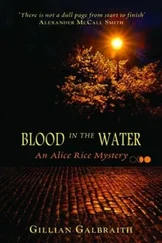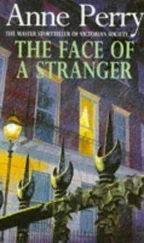Anne Perry - Blood on the Water
Здесь есть возможность читать онлайн «Anne Perry - Blood on the Water» весь текст электронной книги совершенно бесплатно (целиком полную версию без сокращений). В некоторых случаях можно слушать аудио, скачать через торрент в формате fb2 и присутствует краткое содержание. Год выпуска: 2014, ISBN: 2014, Издательство: Random House Publishing Group, Жанр: Исторический детектив, на английском языке. Описание произведения, (предисловие) а так же отзывы посетителей доступны на портале библиотеки ЛибКат.
- Название:Blood on the Water
- Автор:
- Издательство:Random House Publishing Group
- Жанр:
- Год:2014
- ISBN:978-0-345-54844-3
- Рейтинг книги:3 / 5. Голосов: 1
-
Избранное:Добавить в избранное
- Отзывы:
-
Ваша оценка:
- 60
- 1
- 2
- 3
- 4
- 5
Blood on the Water: краткое содержание, описание и аннотация
Предлагаем к чтению аннотацию, описание, краткое содержание или предисловие (зависит от того, что написал сам автор книги «Blood on the Water»). Если вы не нашли необходимую информацию о книге — напишите в комментариях, мы постараемся отыскать её.
Blood on the Water — читать онлайн бесплатно полную книгу (весь текст) целиком
Ниже представлен текст книги, разбитый по страницам. Система сохранения места последней прочитанной страницы, позволяет с удобством читать онлайн бесплатно книгу «Blood on the Water», без необходимости каждый раз заново искать на чём Вы остановились. Поставьте закладку, и сможете в любой момент перейти на страницу, на которой закончили чтение.
Интервал:
Закладка:
Orme’s wind-burned face was pale beneath the superficial color. “Then we’d better be getting on with it,” he said quietly. “We’re looking for a victim who couldn’t be killed any other way without it being obvious who did it. In fact someone who had to be killed then and there. Maybe this was the only way the killer could eliminate his victim without casting suspicion on himself. That cuts it down a lot. Let’s go through that list again.”
An hour later they had reduced it to a dozen people, excluding anyone who had booked passage after the dynamite was stolen, or who would have been just as vulnerable in a less dramatic and dangerous way.
“Soldiers,” Orme said, looking at her carefully. “Men on their way home on leave, celebrating with a party on the river. An’ most of them were here anyway. Could’ve been got at other ways.”
“I know. I’ve got six names to follow up. Thank you very much, Mr. Orme.” She rose to her feet, realizing how long she had been there only when she felt the stiffness in her back. “I’ll start tomorrow morning.”
He stood also. “You’re welcome, ma’am. If I can do anything more, please tell me.”
“I will,” she promised, then turned and walked out onto the dockside, and the steps to catch a ferry home.
She did not tell Monk about her intention. She arrived home late, but he did not know that, being even later himself, and Scuff was too tactful to comment. They sat talking in the parlor. She tried to sound positive as he told her of the rest of his day in court. She wanted to be encouraging, but she knew meaningless comfort was worse than none at all. In the face of what he told her, and Pryor’s extraordinary confidence, her own ideas sounded foolish and she did not mention them.
Next day she began by visiting an old commanding officer she had nursed on the battlefield in the Crimea. He seemed frail now, aged before his time by pain. He was delighted to see her, pleased to recall the past, although it was filled with loss. Even the concept of that war far away on the Black Sea looked in hindsight to be purposeless. So many men had died or been maimed, health lost forever; the memories they shared were full of sadness.
She had no time to spare recalling the cold and the endless journeys with cartloads of wounded, the sound of gunfire in the distance, the makeshift field surgeries where she had worked to exhaustion. But she could not find the heart to tell him that she needed to go. Each time she drew in her breath to say it, the loneliness in his eyes stopped her from being blunt. Another memory came back to him, another face filled with courage, laughter, and pain. So many of them would be dead now it seemed like another life.
“Egypt?” he said at last, returning to the subject she had raised initially. “You should see young Kittering. Good man. On leave at the moment. Injury. Not critical, but enough to need several months to recover. He could tell you about the forces in Egypt. Served with them for a while. Lives just around the corner. See him now and then, if it’s a decent day and I’m sitting outside.” He smiled. “I’ll give you his address. Tell him I asked after him, will you?”
She met Kittering at lunchtime, after not finding him at home and having to make several enquiries. He was walking slowly back from the local inn, limping badly and stopping every now and then to catch his breath. He was nice-looking, with a trim mustache, and square shoulders-even if they were a little lopsided right now.
“Major Kittering?” she asked, meeting his eyes.
“Yes, ma’am,” he said with surprise. He was clearly embarrassed because he could not place her, and thought that he should.
“Mrs. Monk,” she introduced herself. “I’ve just been calling on Colonel Haydon, and he mentioned your name as someone who might be able to assist me.”
“Ah … yes. I mean to call on him myself, as soon as I’m a little more … mobile.” It was an excuse, and he did not like making it. “Fine man.”
She smiled. “He said as much of you.”
“You know him … well? You are family, perhaps?”
“No. Before I was married I nursed, in the Crimea,” she began, and saw the sudden light in his face. She judged him to be of an age when he might have been just beginning his career then. “I need your help, Major Kittering. May I walk with you?” she asked as a matter of courtesy. She had no intention whatever of accepting a refusal.
He was puzzled, but he began moving again, as if to oblige her. Actually she guessed he had no wish to stand any longer than was necessary.
“Of course. What can I do to assist you?” he asked.
He probably imagined it was something to do with nursing. She should tell him the truth quickly.
“My husband is Commander Monk of the Thames River Police,” she explained. Then she went on to tell him first about Beshara, and now Gamal Sabri, and why it mattered so much that the police find the truth. When she at last finished they were sitting in the sun in his small parlor. His sister, who cared for him, had made them tea, even though it was far too early in the afternoon for it to be customary. He had introduced Hester proudly as one of Miss Nightingale’s nurses. It was something Hester never boasted of, but it was true, and she could not afford to refuse any help she might receive.
“And you are sure this man, Gamal Sabri, is guilty?” he asked very quietly, as if he did not wish his sister, now in the kitchen, to overhear him.
“Yes.”
“May I ask you why you now have no doubt, when earlier everyone was equally sure it was Habib Beshara? I don’t wish to be offensive, but a great deal hangs in the balance.”
She looked at the fear and the grief in his face, now more powerful than the weariness of constant physical pain.
She told him the evidence as she was aware of it, and the fact that none of it rested on the accuracy of eyewitnesses, frightened, confused, and too willing to help, too eager to see justice, to separate wish from memory.
“Why do you feel that Sabri will not be convicted?” he asked.
“Pryor is very skilled. We don’t want to accept that we could have been wrong in convicting Beshara and sentencing him to death. If we could make that terrible mistake so easily, who may be next? It seems inescapable that it included not only bad police work, bad conduct of the law, but also deliberate corruption. If that is so, is anyone safe?”
“But Beshara was murdered in prison,” Kittering pointed out. “If he was innocent, and knew nothing, was that no more than a coincidence?”
“I don’t know,” she admitted. “It seems he was an unpleasant man, quite apart from the sinking of the Princess Mary . But it was wrong, regardless of his nature. And I did not say he had nothing to do with the sinking. He may have helped, but he did not place the dynamite or light the fuse.”
Kittering appeared to be deep in thought, struggling with some awful conflict in his mind.
“And we can find no reason why Sabri should have done such a terrible thing,” she added. “Nearly two hundred completely innocent people were killed. Why would anyone do that?”
He was silent for so long she thought perhaps he was not going to answer. She was about to make her argument stronger when finally he spoke.
“Revenge,” he said huskily, his eyes full of pain. “For the destruction of Shaluf et Terrabeh. It was a small village that was wiped out in a raid by mercenaries, just about a year ago.” His face was pale. “A small band of mercenaries, four dozen or so, fell on it at night. It was just a village, a couple of hundred men, women, and children. But if they had sentries, they were picked off first, before they could raise an alarm.”
Читать дальшеИнтервал:
Закладка:
Похожие книги на «Blood on the Water»
Представляем Вашему вниманию похожие книги на «Blood on the Water» списком для выбора. Мы отобрали схожую по названию и смыслу литературу в надежде предоставить читателям больше вариантов отыскать новые, интересные, ещё непрочитанные произведения.
Обсуждение, отзывы о книге «Blood on the Water» и просто собственные мнения читателей. Оставьте ваши комментарии, напишите, что Вы думаете о произведении, его смысле или главных героях. Укажите что конкретно понравилось, а что нет, и почему Вы так считаете.












